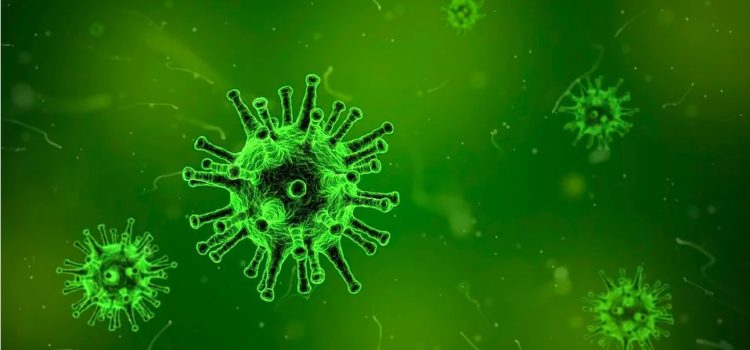

This article is an excerpt from the Shortform book guide to "How Not to Die" by Michael Greger. Shortform has the world's best summaries and analyses of books you should be reading.
Like this article? Sign up for a free trial here .
How does the body protect itself from infections? Is it possible to influence this process to boost your immune response?
The body mounts a defense against infections by releasing antibodies that neutralize foreign invaders such as viruses and bacteria. You can strengthen your immune system by eating a plant-based diet, exercising regularly, and supplementing with immunity-boosting compounds.
In this article, we’ll take a look at ways to boost your immune system naturally through diet and exercise.
Infections and the Immune System
Many infectious diseases resulted from human domestication of animals. We got tuberculosis from goats, measles and smallpox from cattle, typhoid fever from chickens, and the cold virus from horses.
Your immune system consists of a few types of cells:
- White blood cells
- Neutrophils destroy pathogens like bacteria and parasites directly.
- Natural killer cells kill your body’s cells that are infected.
- B cells
- Produce antibodies that bind to a specific antigen (like a bacterial protein).
- These antibodies then deactivate pathogens, or signal to natural killer cells that a cell is infected.
For some reason, people suffering from allergies have a lower risk for some cancers. One theory is that an overactive immune system also protects against threats like cancer cell development.
How to Boost Your Immune System
Like all the other bodily systems, your immune system degrades as you age. But the good news is that there are ways to boost your immune system naturally.
1. Fruits and Vegetables
- An evolutionary theory for the relationship between eating plants and the immune system: to reduce energy expenditure, the immune system activates itself periodically at times of greatest risk—including eating food with potential pathogens. As cavepeople, we evolved over millions of years mainly eating plants, not meat—therefore, plants serve as better triggers to activate our immunity.
- A host of experiments show the benefits:
- In an experiment, people over 65 who ate 5+ servings of fruits and vegetables had a 82% greater protective antibody response to vaccine, compared to people who ate <3 servings.
- Raw kale extract stimulates 5x greater antibody production in vitro
- Broccoli activates intraepithelial lymphocytes.
- Phytonutrients from plants reduce the toxicity of dioxins (common in pollution) in vitro, but the effects only last for a few hours.
- Blueberries (1.5 cups per day for 6 weeks) doubled natural killer counts in athletes after intense exercise, when normally exercise cuts those cell counts in half.
2. Antibody Diet
- Cardamom activated the activity of natural killer cells against lymphoma cancer by 10x in vitro.
- Probiotics: Babies delivered via C-section have increased risk for allergies. The theory is that natural birth babies are exposed to the mother’s vaginal bacteria, which then reside in the baby’s gut.
- There isn’t enough evidence yet to suggest that supplementation of probiotics is necessary.
- Mushrooms: Eating button mushrooms daily over a week increased IgA antibody levels in saliva by 50%.
3. Exercise
- Exercise may activate IgA antibody production in saliva, eyes, and nostrils.
- Aerobic exercise for 30 minutes a day, 3 times a week for 12 weeks increased IgA levels in saliva by 50%, compared to control.
- Elderly sedentary women have a 50% chance of getting a cold in the fall. 0.5 hours per day of walking reduces the risk to 20%. Conditioned runners have just an 8% risk.
- Overtraining, like with marathons, increases risk of infection. This can be addressed through eating chlorella and nutritional yeast—both reduce the risk of infection and maintain IgA/white blood cell levels.
To prevent transmitting diseases to other people when you’re sick:
- Cough into the crook of your arm (inner elbow), not your hand.
- Sanitize your hands after every bathroom visit and handshake, before preparing food, and before touching your eyes or mouth.
- Alcohol-based rubs are preferred for sanitation.
Food Poisoning
Animal foods are the most common source of food poisoning. The common pathogens like E. coli are intestinal bacteria and common in animal feces. Plants don’t have intestines, and so they don’t naturally harbor pathogens.
- Outbreaks of food poisoning in vegetables are often caused by contamination by manure or animals and delivered to plants, eg through irrigation water
Food poisoning often resolves within days, but children and the elderly are especially at risk for worse infections and complications.
The most common food poisoning pathogens:
- Eggs and Salmonella: these can survive the egg cooking methods of scrambling and sunny-side-up.
- Poultry and Salmonella: even when chicken is cooked well, cross contamination spreads bacteria to the kitchen counter, faucet, refrigerator handles, and elsewhere.
- Meat and E. coli: beef has gotten safer over time to eat, partly because of the regulation on the sale of contaminated beef.
- Pork and Yersinia
- All meat and C. difficile: this bacterium resides in your gut and can flare up when you take antibiotics and disrupt your gut microbiome
There’s a lot of concern about bacteria that are resistant to antibiotics. 80% of antibiotics produced go to the meat industry, where animals living in poor conditions tend to get disease that needs antibiotic dosing. This creates an environment enriching for drug-resistant bacteria. By reducing our collective meat intake, we can reduce the development of more serious infections.

———End of Preview———
Like what you just read? Read the rest of the world's best book summary and analysis of Michael Greger's "How Not to Die" at Shortform .
Here's what you'll find in our full How Not to Die summary :
- The health benefits of a plant-based, whole-food diet
- How to reduce your risk of developing the most common diseases that can kill you
- The 12 foods you should eat daily to maximize health benefits






